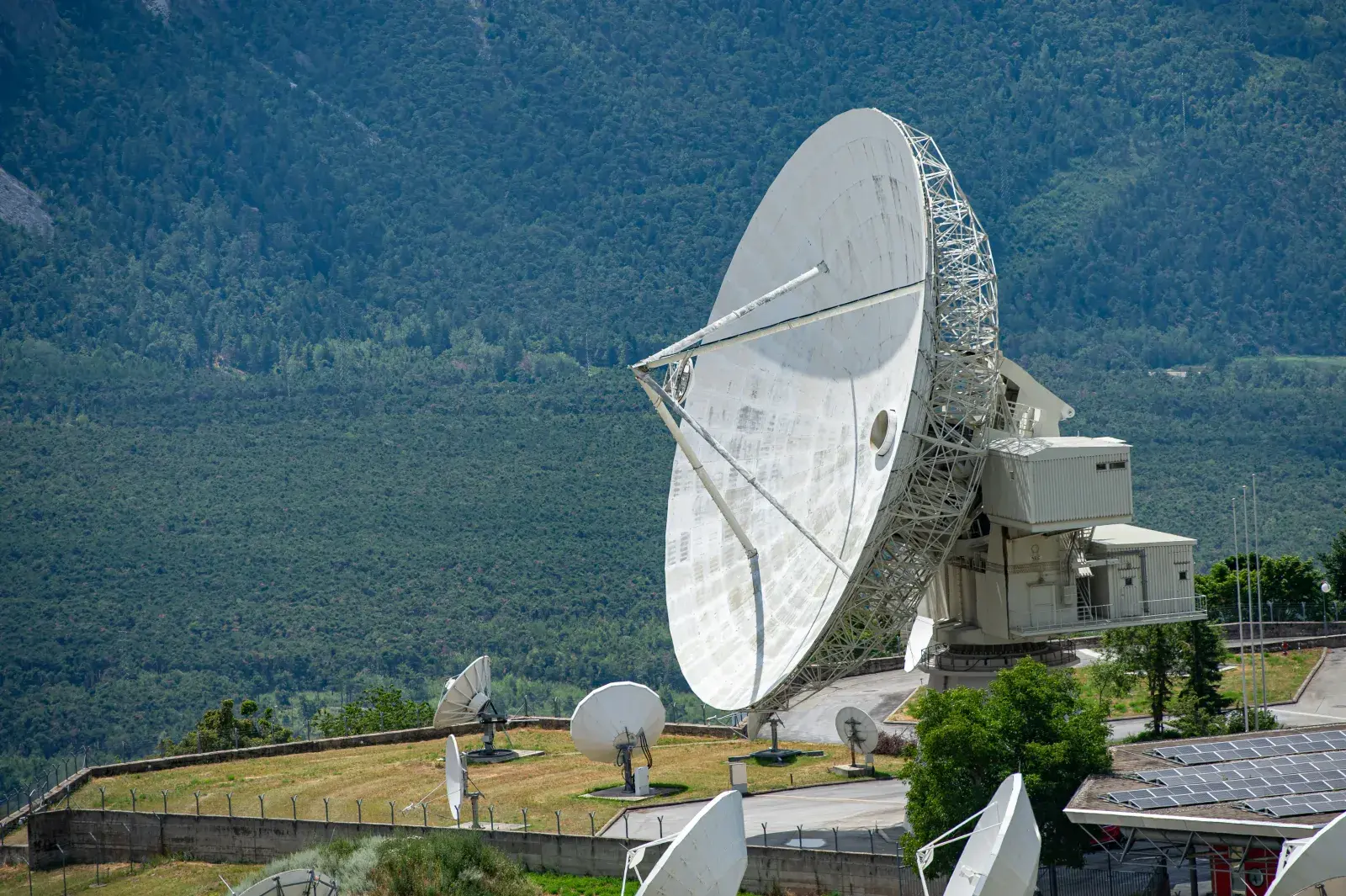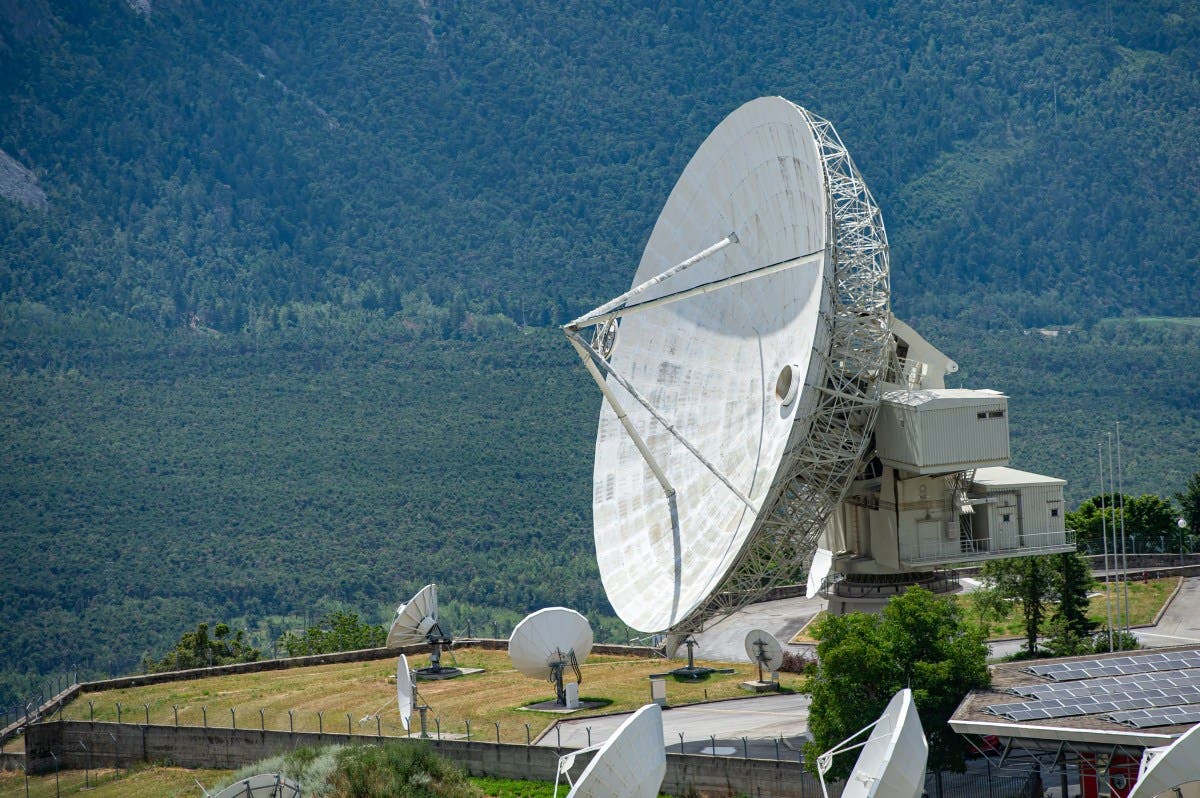A Russian satellite, that previously sparked alarm from NATO member Germany about Moscow’s military intentions in space, is nearing the end of its mission, according to analysis.
Kayhan Space, a Colorado-based firm of spaceflight and satellite experts, said it had found that the Luch-Olymp satellite appears to be maneuvering to an end-of-life orbit.
German defense minister Boris Pistorius said in September that two Russian Luch-Olymp reconnaissance satellites were tracking Intelsat satellites used by the German military.
But Kayhan Space said one Luch-Olymp was repositioning for its final task, with Kayhan CEO Siamak Hesar, telling Newsweek, “Russia’s capability has been reduced, at least for now.”
 Why It Matters
Why It Matters
There have been growing fears about Russia developing satellites as a new military domain beyond the Earth’s atmosphere, which could complicate NATO’s efforts at deterrence from its adversaries.
Launched in 2014, the Luch-Olymp is one of the most closely watched and debated satellites in geostationary orbit.
Pistorius had raised the alarm at how—along with its 2023 successor—Russian satellites could “eavesdrop” on other satellites, as the minister announced a €35 billion ($41 billion) space program investment for constellations to withstand jamming and kinetic attacks.
What To Know
Kayhan said that over the course of two weeks in October, Russia’s Luch-Olymp satellite initiated a series of altitude-raising burns, climbing more than 260 miles above the protected region and drifting west.
Kayhan said that whether it is intentional disposal or a repositioning for its final tasking, the maneuver “brings one of the most agile and enigmatic intelligence assets ever fielded in geostationary orbit closer to the end of its mission lifetime.”
Over the last decade, the Russian satellite conducted a series of deliberate proximity operations with commercial and military spacecraft, including Seasat 2, Intelsat 7, Intelsat 901, Intelsat 905, Athena-Fidus, Skynet 4C, Astra 1G, and Turksat 4.
Its persistent “shadowing” of targets marked a new era of on-orbit intelligence collection and drew strong criticism from Intelsat and France in actions that reshaped how operators assess safety, intent, and transparency in geostationary orbit, Kayhan said.
Hesar told Newsweek that in the case of its Luch/Olymp class satellites, Russia’s capability had been temporarily reduced.
However, he noted how from 2014 to 2023, Russia only operated one Luch/Olymp satellite for intelligence operations. Luch/Olymp 2 is the successor likely intended to replace the original satellite as it neared end of life, Hesar said.
Luch/Olymp 2 appears designed primarily to sustain those capabilities rather than expand them. Whether Russia adds satellites remains to be seen, but at this point, the replacement maintains continuity rather than increasing capacity, he added.
What People Are Saying
Kayhan Space in a statement: “In October 2025, the satellite initiated a series of altitude-raising burns…. the maneuver brings one of the most agile and enigmatic intelligence assets ever fielded in geostationary orbit closer to the end of its mission lifetime.”
Kayhan Space CEO Siamak Hesar to Newsweek: “Russia’s capability has been reduced, at least for now. However, it’s important to keep in mind that from 2014 to 2023, Russia only operated one Luch/Olymp satellite for these types of intelligence operations.”
What Happens Next
Russia operates other reconnaissance or “inspector” satellites, notably within its Cosmos series and recent launches show that it’s likely that Moscow intends to continue developing and deploying inspector-type capabilities, Hesar said.

